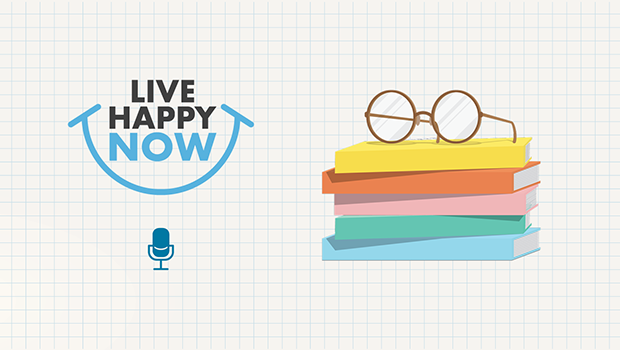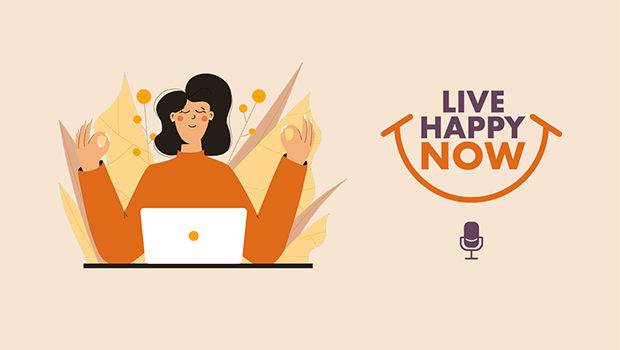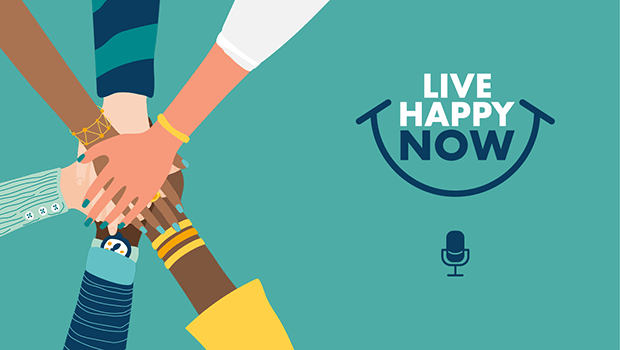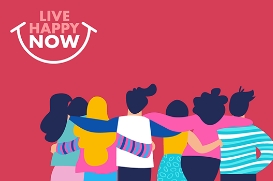Don't forget zinc and vitamin B12 for a healthy body and brain.
I’m a psychiatrist, and a few years back, I changed how I practice medicine. A new class of medications was causing a series of side effects for the patients in our clinic. While these medications were often necessary prescriptions, patients began to gain weight at an alarming rate and frequently developed diabetes and high blood pressure.
Healthy eating and exercise were major interests in my personal life, and I’d been a vegetarian for about a decade, but I hadn’t been talking to my patients about food and lifestyle choices. Food became a focus of my work. Increasingly curious about what my patients ate, I was also determined to find out what I should advise them to eat based on scienti fic evidence.
The power of nutrients
I started reading about the recent advances in the science of nutrition, and felt foolish as I realized that the standard advice I was offering—“don’t eat cholesterol or fat”—was both scienti fically wrong and woefully inadequate. I also learned that my vegetarian diet wasn’t likely the healthiest.
In my new book, Eat Complete: The 21 Nutrients That Fuel Brainpower, Boost Weight Loss, and Transform Your Health, I identify the 21 nutrients (vitamins, minerals, fats, proteins, plant-based phytonutrients and health-promoting bacteria) that are essential for the health of our bodies and brains. I’ve selected them based on science and on the reality that Americans are missing a number of key nutrients in their diets. The simple and scary truth is that the majority of people eat a diet lacking the most important nutrients for health.
Let’s look at just two of those nutrients and why you require them.
ZINC
Zinc, a mineral, is key to your immune function (your body’s defense system that protects you from infections, cancer and excess in flammation). Zinc is one of the main reasons you need to eat seafood or meat to get all the 21 vital nutrients (“eat complete”). Plants contain zinc, but they hold on to it quite tightly—so tightly that you don’t absorb much. And while grains contain zinc, 80 percent of that zinc is lost when grains are re fined, which is one of several reasons that you should always eat whole grains.
 While doctors routinely check for the levels of many minerals, they do not test for zinc because it is nearly impossible to diagnose low levels of it. Stress can cause zinc levels to drop, as can illness and heavy exercise. The symptoms of zinc deficiency are very diverse because zinc is central to so many functions—your immune system, your ability to burn fats and carbohydrates and even the ability for your cells to divide.
While doctors routinely check for the levels of many minerals, they do not test for zinc because it is nearly impossible to diagnose low levels of it. Stress can cause zinc levels to drop, as can illness and heavy exercise. The symptoms of zinc deficiency are very diverse because zinc is central to so many functions—your immune system, your ability to burn fats and carbohydrates and even the ability for your cells to divide.
Zinc is so crucial to your health that if you are de ficient in it, you also become functionally de ficient in vitamin A and folate, two of the other 21 essential nutrients, as zinc is needed for those substances to be effective. Taking too much zinc in supplement form can impair immune function and cause gastrointestinal distress—all the more reason to get the zinc that you need from the food that you eat.
VITAMIN B12 (COBALAMIN)
B12 is one of two vitamins that predict the rate of how fast your brain shrinks as you age. It’s a depressing thought, but all brains eventually shrink as you grow older. To slow that shrinkage, maximize your absorption of vitamin B12 by keeping the stomach and gut healthy, and eat the most concentrated sources of B12.
Low levels of vitamin B12 can cause irreversible damage to brain and nerve cells at any age. And an actual B12 de ficiency causes depression, anemia and even psychotic symptoms such as extreme paranoia or hearing voices. B12 de ficiency is common in many populations, with vegans and vegetarians at the greatest risk as meat and animal products such as dairy are the only sources of B12. Vegans must take supplements, and vegetarians must rely on dairy and/or supplements.
De ficiency is also common in people over 50, as some people produce less stomach acid as they age, and this is a crucial element for B12 absorption from food. Acid re flux medications also decrease acid production and interfere with the body’s ability to absorb B12.
Listen to our podcast with Dr. Drew: Happier With Every Bite
Zinc Facts
- Amount you should eat per day: Women, 8 milligrams; men, 11 milligrams.
- Insuf ficient dietary intake: 42% of U.S. population. Deficiency risk factors: Vegetarian diet, pregnancy and lactation, and heavy alcohol use. Diuretic medication can increase excretion by the kidney by 60 percent.
- Top five food sources: Oysters (413% of your Recommended Daily Allowance can be found in six oysters), steak (175% in one 5-ounce steak), sesame seeds (34% in ¼ cup), pumpkin seeds (31% in ¼ cup) and ground turkey (23% in 3 ounces).
B12 Facts
- Amount you should eat per day: 2.4 micrograms for women and men.
- Insuf ficient dietary intake: 20% of U.S. population and 73% of vegans have blood levels that are de ficient or insuf ficient.
- Top 5 food sources: Clams (1,401% of the Recommended Daily Allowance can be found in 3 ounces), beef liver (1,178% in 3 ounces), mussels (833% in 3 ounces), sardines (338% in 3 ounces), crab (127% in 3 ounces), trout (106% in 3 ounces) and wild salmon (82% in 3 ounces).
Dr. Drew Ramsey is an assistant clinical professor of psychiatry at Columbia University College of Physicians and Surgeons. Drew uses the latest findings in brain science to help people live their healthiest, happiest lives. His forthcoming book, due out in April, is Eat Complete: The 21 Nutrients That Fuel Brainpower, Boost Weight Loss, and Transform Your Health.



















